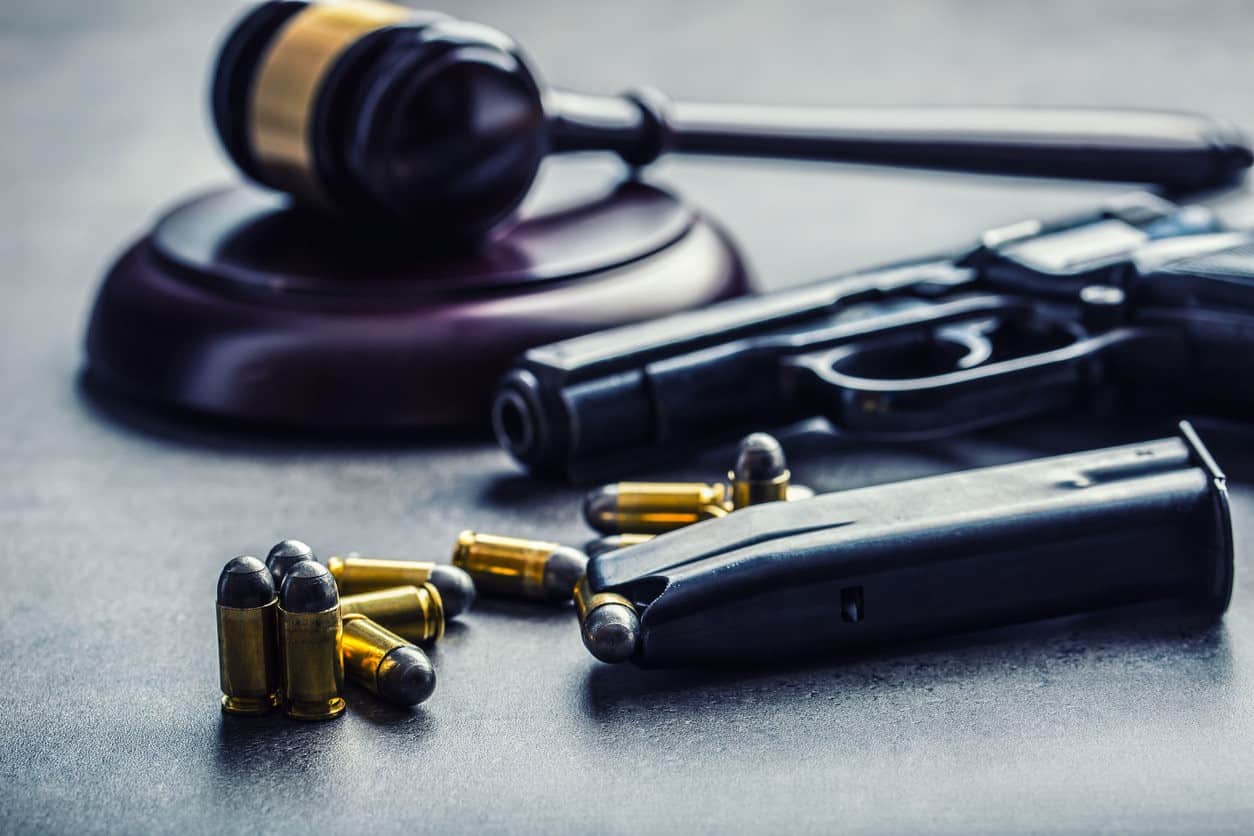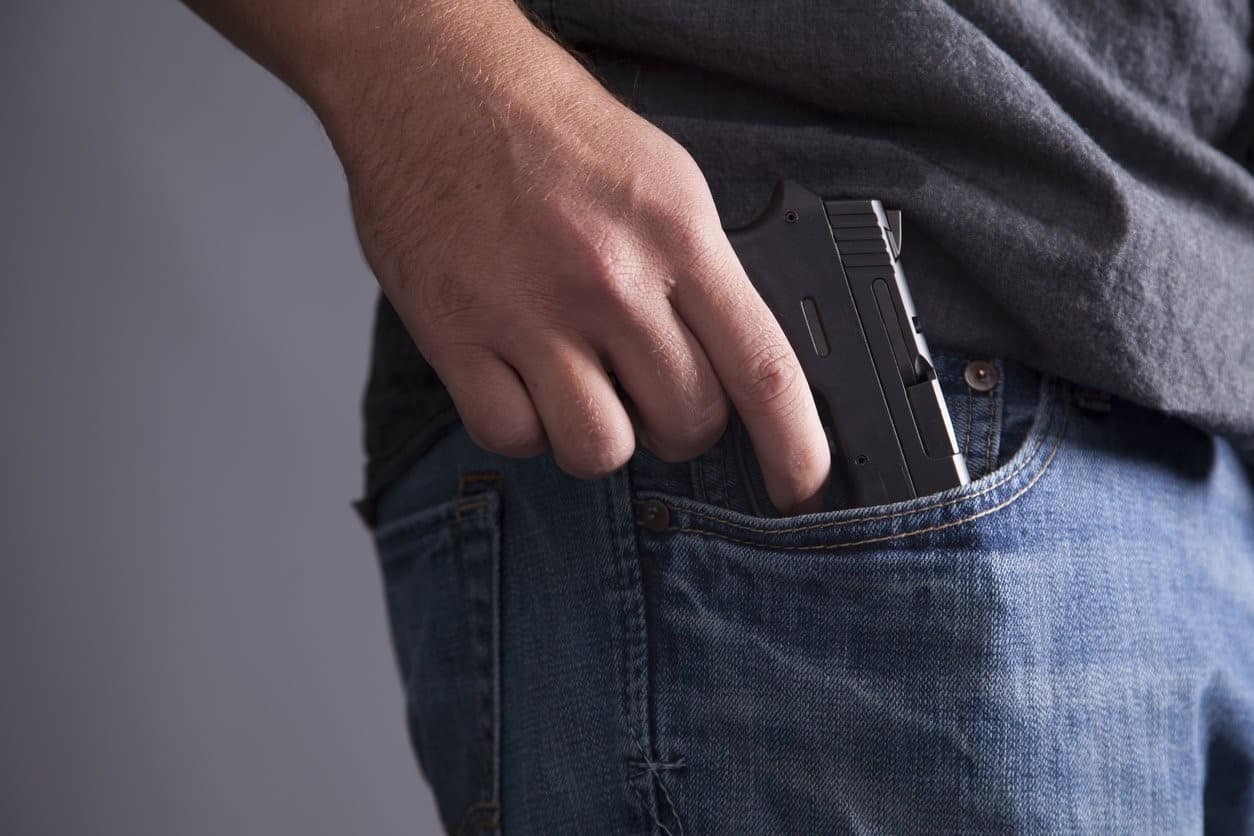The Ultimate Guide to Understanding Wagering Requirements: Everything You Need to Know
October 21, 2024

Could You Get Arrested for Recording Law Enforcement?
6 Things to Do If You Have Been Issued a Protection Order
On June 27, the United States Supreme Court concluded a historic gun rights case by upholding a federal ban on individuals who have been convicted of misdemeanor domestic violence from owning or purchasing firearms. The court voted 6-2 in favor of upholding the ban.
The case, Voisine vs. United States, involved two men from Maine: Stephen Voisine and William E. Armstrong III. Both men were petitioning for their right to own a firearm despite their past domestic violence convictions.
Stephen Voisine was convicted of assault after slapping his girlfriend while he was intoxicated in 2004. Five years later, he was accused of shooting a bald eagle with a rifle and sentenced to a year in prison for illegal gun ownership.
William Armstrong was convicted of assaulting his wife in 2008. He was arrested again, years later, for having firearms and ammunition after his home was searched by police. He received three years of probation.
Both men were convicted of misdemeanor domestic violence. Under federal law this means that they are prohibited from purchasing, owning, or using a firearm. The two men argued that in cases involving convictions for misdemeanor reckless conduct, the offender should not lose his or her constitutional right to bear arms. Cases of reckless conduct differ from typical domestic violence cases because the intention to harm was not present.
As mentioned above, the Supreme Court was not swayed by their argument. However, this has not stopped anyone on either side from continuing the debate.

One of those opponents was Supreme Court Justice Clarence Thomas, who asked a series of questions during this case. This is worth noting because it was the first time in 10 years that Justice Thomas asked questions from the bench.
Supporters of the ban argue that domestic violence and gun ownership are not a good mix. This ban has been active for almost 50 years, ever since the 1968 Gun Control Act banned anyone who had been issued a domestic violence protection order or convicted of felony domestic violence from owning firearms.
The bill was passed with overwhelming support in Congress, and in 1996, an amendment was added to include misdemeanor domestic violence convictions as well. With that decision, Congress essentially said “anyone who attempts or threatens violence against a loved one has demonstrated that he or she poses an unacceptable risk, and should be prohibited from possessing firearms.”
This amendment played a big part in the Supreme Court’s decision to uphold the ban. Justice Elena Kagan wrote that the 1996 amendment was added to close loopholes and “prohibit domestic abusers convicted under run-of-the-mill misdemeanor assault and battery laws from possessing guns.” Making an exception for reckless behavior would “substantially undermine the provision’s design.” Basically, lifting the ban would knowingly reopen big loopholes.
Although this decision came just days after the largest mass shooting in American history happened at an Orlando nightclub, experts say the Supreme Court ruling is unlikely to have much of an effect on gun control and restrictions on the American public at large.

The law states that anyone who has been issued a protection order must relinquish his or her firearms and ammunition within 24-72 hours of the order being put in place. If a protection order is lifted and the person has not been convicted on any domestic violence-related charges, their gun rights may be reinstated.
At the time, 80% of Colorado voters agreed that judges should be allowed to enact this type of ban. So even if the Supreme Court decision had gone a different way, Colorado state law would still ban firearms ownership based on misdemeanor convictions.
If you have been issued a protection order or have been convicted of a domestic violence-related crime, you could face time in jail or heavy fines. A domestic violence conviction also has consequences that last longer than any jail sentence or probation period. Getting domestic violence charges dropped or proving your innocence is the only way to secure your 2nd Amendment right to bear arms.
About the Author:
Denver-based criminal defense and DUI attorney Jacob E. Martinez is a knowledgeable and experienced litigator with a record of success providing innovative solutions to clients facing criminal charges of any severity. Mr. Martinez has been designated a Top 100 Trial Lawyer by the National Trial Lawyers and has been awarded both the Avvo Client’s Choice Award and Avvo Top Attorney designation, evidencing his reputation for his exemplary criminal and DUI defense work and high moral standards.